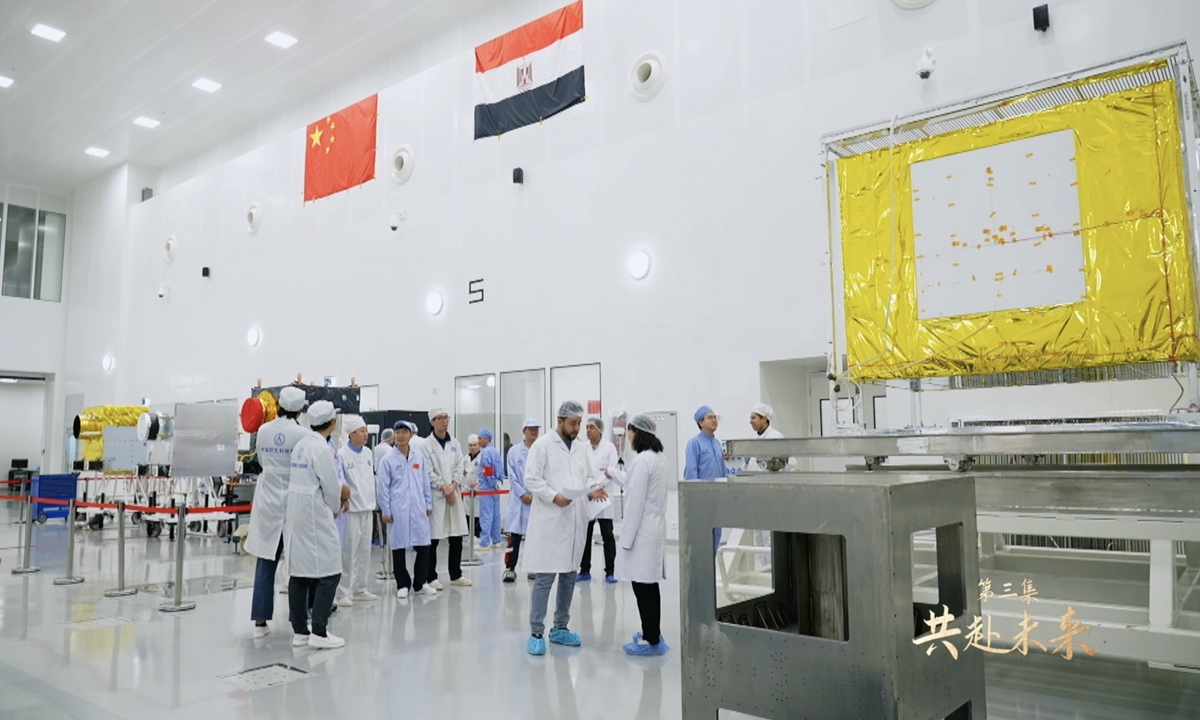
A screen cut of the documentary Close Friends Across Continents Photo: Courtesy of CMG
As the Forum on China-Africa Cooperation (FOCAC) unfolds, global attention turns to the strengthening partnership between China and Africa. As China and Africa discuss the path of Global South modernization, artworks have showcased the deep emotional and cooperative ties between them.
The relationship between China and Africa is not a distant concept. From infrastructure projects to healthcare improvements and entrepreneurship, the collaboration between the two sides has expanded into an all-weather China-Africa community with a shared future for the new era that goes beyond politics and economics and encompasses the emotional and psychological integration of the people of China and Africa.
Close Friends Across Continents, a three-episode documentary created by CCTV that recently aired, paints a vivid picture of the intertwined destinies of both regions through the lens of people-to-people exchanges, while also highlighting a robust, enduring partnership based on mutual respect and shared development goals.
Since the 20th century, China has played a key role in Africa's infrastructure development, a sector that remains crucial today. Projects like the Magufuli Bridge in Tanzania stand as symbols of this partnership. Spanning Lake Victoria, the bridge is set to eliminate commuting barriers for millions of people and strengthen social and economic ties between communities.
For the engineers and workers who built it, this project was more than just a job - it was a commitment to creating a more connected and prosperous Africa. Across the continent, Chinese construction teams are building roads, railways, and bridges that not only increase economic opportunities but also enhance the quality of life for African communities.
Public service improvements, such as healthcare and education, are equally central to the China-Africa relationship. One standout example is the African Centers for Disease Control and Prevention, constructed with China's assistance. This state-of-the-art facility, along with Chinese-built hospitals, has become a pillar of Africa's healthcare infrastructure. These healthcare projects do more than save lives; they foster a sense of community and shared destiny between China and Africa.
The future of China-Africa cooperation lies not only in infrastructure and public service, but also in business in a variety of fields. In the past few years, the two regions have explored new models of cooperation in industries like renewable energy, healthcare technology, and more. Chinese companies have helped establish solar power plants and electric vehicle battery factories in Africa, promoting the sustainable development of the continent.
Joint ventures in medical testing technology have also modernized healthcare systems, helping Africa transform from a developing region to an emerging leader in high-tech industries. This shift is not just about economic growth, it is about empowering Africa to stand as a global leader, contributing to solutions that benefit both the continent and the world.
Ultimately, the connection between China and Africa is humanistic. The phrase "Miles apart, yet close at heart" perfectly captures the emotional and cultural bonds that have formed between the people of these two regions. As a global communication scholar, I deeply feel that the cooperation between China and Africa is based on the interactions of ordinary people - engineers, doctors, entrepreneurs - who aim at not only improving their lives but also creating lasting friendships.
We need to focus on the two-way interaction and multilateral development between China and Africa, especially the role that media in this era assigns to each of us. Building a high-level China-Africa community with a shared future and promoting the modernization of the Global South are the tasks and practices in which we must actively engage.
The author is a professor and deputy dean of the Institute for A Community with Shared Future at Communication University of China in Beijing, and vice chair of the International Communication Section of International Association for Media and Communication Research.




